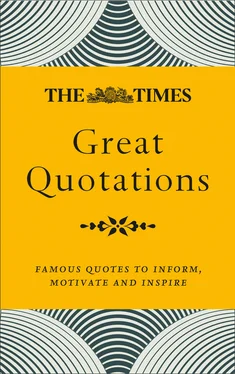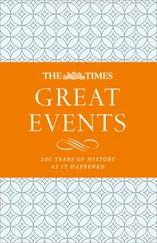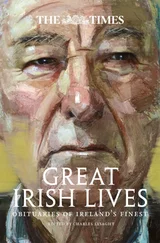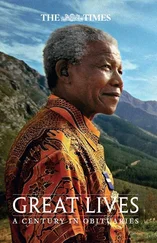•
Far better it is to dare mighty things, to win glorious triumphs, even though checkered by failure, than to rank with those poor spirits who neither enjoy much nor suffer much, because they live in that grey twilight that knows neither victory nor defeat.
[ The Strenuous Life speech, 1899]
Theodore Roosevelt, 26th president of the US (1858–1919)
•
As you enter positions of trust and power, dream a little before you think.
[Commencement speech at Sarah Lawrence College, 1988]
Toni Morrison, American writer (1931–)
•
What would life be if we had no courage to attempt anything?
[Letter to his brother Theo, 1881]
Vincent van Gogh, Dutch painter (1853–1890)
•
The man who removes a mountain begins by carrying away small stones.
[Interview with The Paris Review, 1956]
William Faulkner, American writer (1897–1962)
•
You cannot swim for new horizons until you have courage to lose sight of the shore.
The Mansion (1959)
William Faulkner, American writer (1897–1962)
•
Things won are done; joy’s soul lies in the doing.
Troilus and Cressida (1602)
William Shakespeare, English poet and dramatist (1564–1616)
•
I would rather fail in a cause that will ultimately triumph than to triumph in a cause that will ultimately fail.
[Campaign speech at New York State Fair Grounds, Syracuse, 1912]
Woodrow Wilson, 28th president of the US (1856–1924)
•
A pessimist sees the difficulty in every opportunity; an optimist sees the opportunity in every difficulty.
[Attr.]
Sir Winston Churchill, prime minister of the UK, historian and Nobel Prize winner (1874–1965)
It is often said that there is no such thing as a free lunch. The universe, however, is a free lunch.
Harper’s Magazine (1994)
Alan Guth, American theoretical physicist (1947–)
•
Zen … does not confuse spirituality with thinking about God while one is peeling potatoes. Zen spirituality is just to peel the potatoes.
The Way of Zen (1957)
Alan Watts, British teacher and writer (1915–1973)
•
My country, right or wrong; if right, to be kept right; and if wrong, to be set right!
[Speech to the US Senate, 1872)
Carl Schurz, German revolutionary and American statesman (1829–1906)
•
Men will wrangle for religion; write for it; fight for it; die for it; anything but live for it.
Lacon (1820)
Charles Caleb Colton, English cleric (1780–1832)
•
Isn’t it enough to see that a garden is beautiful without having to believe that there are fairies at the bottom of it too?
The Hitchhiker’s Guide to the Galaxy (1979)
Douglas Adams, English humourist and dramatist (1952–2001)
•
Not things, but opinions about things, trouble men.
The Enchiridion of Epictetus (c. 125)
Epictetus, Greek philosopher (50–135)
•
At eighteen our convictions are hills from which we look; at forty-five they are caves in which we hide.
Bernice Bobs her Hair (1920)
F Scott Fitzgerald, American writer (1896–1940)
•
All good moral philosophy is but a handmaid to religion.
The Advancement of Learning (1605)
Francis Bacon, English philosopher, statesman and essayist (1561–1626)
•
So long as man remains free he strives for nothing so incessantly and so painfully as to find someone to worship.
The Brothers Karamazov (1880)
Fyodor Dostoyevsky, Russian writer (1821–1881)
•
If the Devil doesn’t exist, but man has created him, he has created him in his own likeness.
The Brothers Karamazov (1880)
Fyodor Dostoyevsky, Russian writer (1821–1881)
•
There is only one religion, though there are a hundred versions of it.
Plays Pleasant and Unpleasant (1898)
George Bernard Shaw, Irish playwright (1856–1950)
•
Religions are kept alive by heresies, which are really sudden explosions of faith. Dead religions do not produce them.
Thoughts in a Dry Season (1978)
Gerald Brenan, British writer (1894–1987)
•
If God is your emotional role model, very few human relationships will match up to it.
Oranges are Not the Only Fruit (1985)
Jeanette Winterson, English writer (1959–)
•
Religion, which should most distinguish us from the beasts, and ought most particularly elevate us, as rational creatures, above brutes, is that wherein men often appear most irrational, and more senseless than beasts.
An Essay Concerning Human Understanding (1689)
John Locke, English philosopher (1632–1704)
•
God and the doctor we alike adore
But only when in danger, not before;
The danger o’er, both are alike requited,
God is forgotten and the doctor slighted.
Epigrams (1677)
John Owen, Welsh epigrammist (1564–1622)
•
Human beings are perhaps never more frightening than when they are convinced beyond doubt that they are right.
The Lost World of the Kalahari (1958)
Laurens van der Post, South African writer and political adviser (1906–1996)
•
I see it as an elderly lady, who mutters away to herself in a corner, ignored most of the time.
[In Reader’s Digest , 1991, about the Church of England]
Lord Carey of Clifton, Archbishop of Canterbury (1935–)
•
To give light to them that sit in darkness and in the shadow of death, to guide our feet into the way of peace.
The Bible
Luke 1:79
•
Man is quite insane. He wouldn’t know how to create a maggot, and he creates gods by the dozens.
Essais (1580)
Michel de Montaigne, French philosopher (1533–1592)
•
He who gains an indulgence is not, strictly speaking, absolved from the debt of punishment, but is given the means whereby he may pay it.
Summa Theologica (1485)
Saint Thomas Aquinas, Italian Catholic priest (1225–1274)
•
If the sun and moon should doubt, they’d immediately go out.
Auguries of Innocence (1863)
William Blake, English poet (1757–1827)
•
Both read the Bible day and night,
But thou read’st black where I read white.
The Everlasting Gospel (c. 1818)
William Blake, English poet (1757–1827)
•
It is a mistake to suppose that God is only, or even chiefly, concerned with religion.
William Temple, British theologian and Archbishop of Canterbury (1881–1944)
•
I am ready to meet my Maker. Whether my Maker is prepared for the great ordeal of meeting me is another matter.
Sir Winston Churchill, prime minister of the UK, historian and Nobel Prize winner (1874–1965)
•
Even God is deprived of this one thing only: the power to undo what has been done.
Agathon, Greek poet (448–400 BC)
•
God does not play dice.
The Born-Einstein Letters (1926)
Читать дальше












